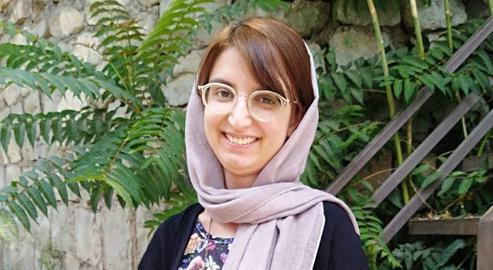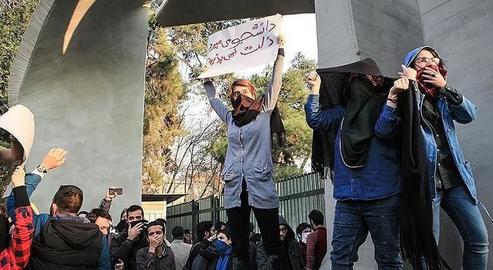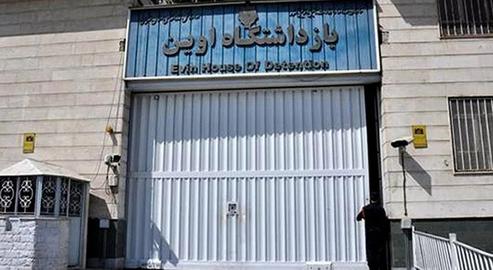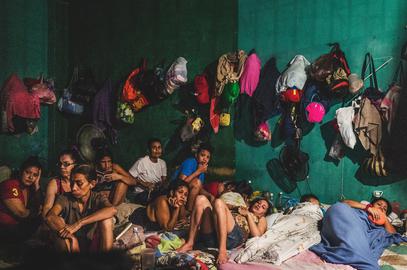Parisa Rafiei, a University of Tehran labor activist turned political prisoner at Evin Prison, has just had another 15 months added to her prison sentence.
Rafiei was among the students who were arrested after protests in January 2017, and she was later released on bail. But then in August 2018, she was sentenced to one year in prison on charges of "conspiracy to disrupt the security of the country." The only evidence cited to support the accusation were her legitimate activities as a unionist.
The 23-year-old photography student, who has been held in Tehran’s Evin Prison since July 2020, has now been handed another 15 months in a separate case. She was charged this time in connection with writing a revealing letter about interrogators' treatment of her after her arrest during the protests in January 2017.
The court of first instance, which was convened to hear this charge, acquitted her in Tehran. But her acquittal was challenged by the Tehran Prosecutor's Office, and Branch 36 of the Court of Appeal, headed by Abbas Zargar, finally issued the 15-month sentence.
IranWire spoke to a source close to Rafiei about what happened during this period.
***
In reaction to the new 15-month sentence, a person close to Parisa Rafiei insisted that her letter is a historical document: one that testifies to the routine practice of torturing political prisoners in Iran.
The source did not find her sentence surprising either. "Unfortunately Parisa's family doesn’t know much about the conditions that were set up for her in prison,” they told IranWire. “Her contact with them has been brief, and it wasn’t even possible for her parents to appear in court.
“The fact is that the circumstances of the trial and the conduct of the judge weren’t really so important here. When Parisa openly protested against the prosecutor and judge’s behavior with that letter, they considered it propaganda against the regime.”
Rafiei's letter was published last year, at the same time as the arrest and detention of a number of other labor activists and journalists. She described some of the torture she had endured during her imprisonment, including 21 days in solitary confinement, being forced to undergo a “virginity test” and being deprived of any contact with her family. The student said she had published the letter in an attempt to make it more difficult for prison authorities to commit illegal and inhumane acts.
Propaganda Against the Regime
It is noteworthy that Rafiei was not charged with “spreading lies”, but with “propaganda against the regime”. In effect it means the security apparatus does not deny the use of these psychological and physical torture methods against prisoners, but considers their public disclosure to be harmful.
"The charges brought on the basis of this letter,” the source said, “show that even from the prosecutor's point of view, the content of the letter isn’t a lie. The problem is rather the publishing of these facts. On the other hand, when the court of first instance acquitted her, it meant that it hadn’t find any evidence for this charge.”
This person considers the issuance of an additional prison sentence in the Court of Appeal – on the prosecutor’s request – to be a sign of extrajudicial interference. Musa Barzin Khalifehlou, a lawyer and legal advisor for IranWire, said the prosecutor's appeal against the court's ruling was not necessarily illegal but certainly “unusual”.
"The prosecutor's office is legally a party to the lawsuit in any case,” he said, “and it can appeal against verdicts. However, it should be noted that according to the general procedure, prosecutors do not usually object to the acquittal of defendants issued in the court of first instance. This is one of only a few cases in which this has happened. The Court of Appeal is the main party responsible for this ruling being issued."
In the appeal verdict issued by Judge Zargar, certain terms used by Rafiei in her letter such as "repression," "repression apparatus," "repressive forces" and "harassment" and were cited as examples of propaganda against the regime.
Virginity Test Demanded
The judge also referred to a weighted part of Rafiei’s letter, which read:
"Now I, Parisa Rafiei, as one of the independent student lbaor activists who have suffered in their cases from the lack of transparency in judicial and security matters, the practically silent atmosphere of the media and the public's indifference to the catastrophic conditions of political prisons in Iran, will describe two important instances of harassment by the security apparatus during my detention to show how security officers, the Ministry of Intelligence and the IRGC [Islamic Revolutionary Guard Corps] use inhumane and violent forms of harassment of prisoners, especially female prisoners. Violence, along with psychological games, is widely used to make forced confessions and prosecute political activists, and there is no doubt that the evidence thus gathered will be affirmed in the trial and the sentencing process."
Rafiei went on to dedicate part of the letter to describing her being forced to undergo a “virginity test”: a form of torture used on women prisoners. This invasive and abusive procedure is carried out in coordination with the judiciary and security system, in a systematic manner. "During my detention the case investigator, with the approval and support of the prosecutor, completely illegally sent me to a forensic doctor on Behesht Street to perform a virginity test,” she wrote. “But due to my resolute resistance, they failed to do so, despite many threats and pressures. They also rejected my request to file a complaint against this illegal process and remained silent.”
Related coverage:
Weekly Review of Censorship: Punishment for Letters and Videos
visit the accountability section
In this section of Iran Wire, you can contact the officials and launch your campaign for various problems



























comments